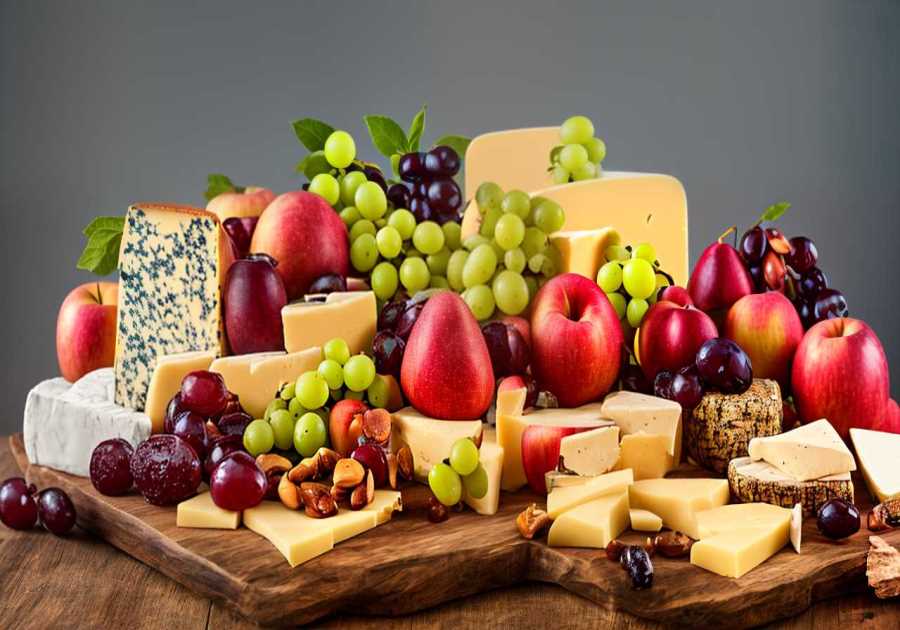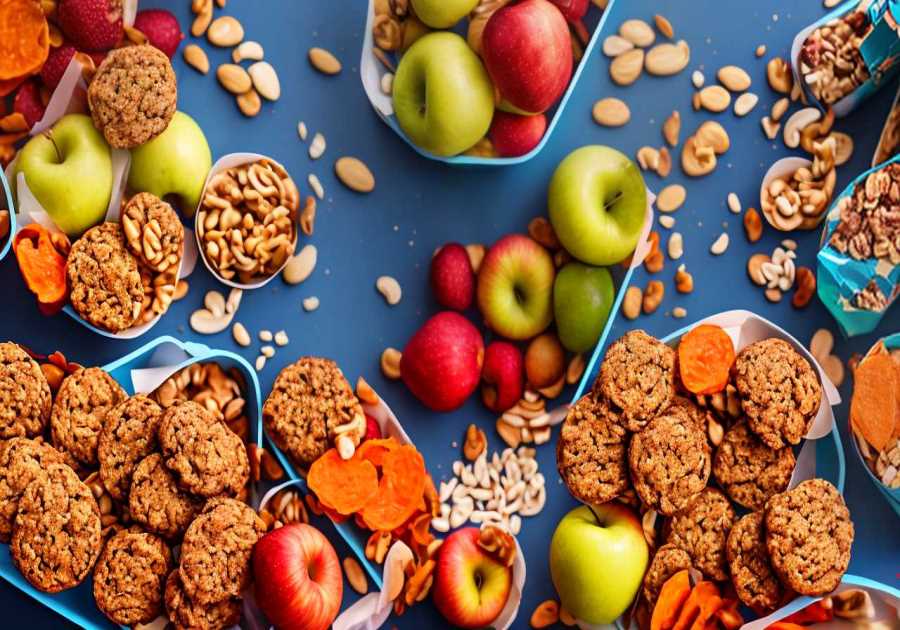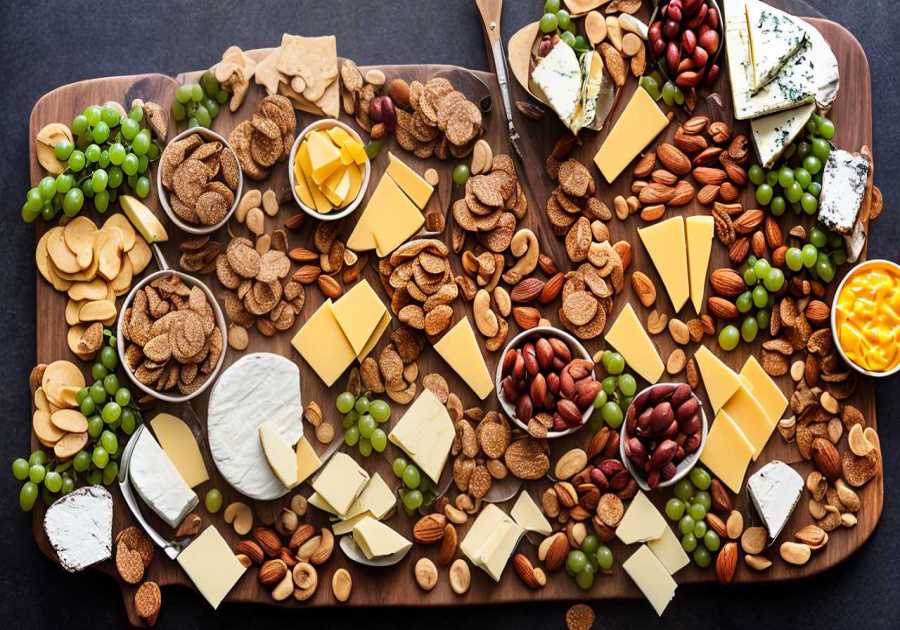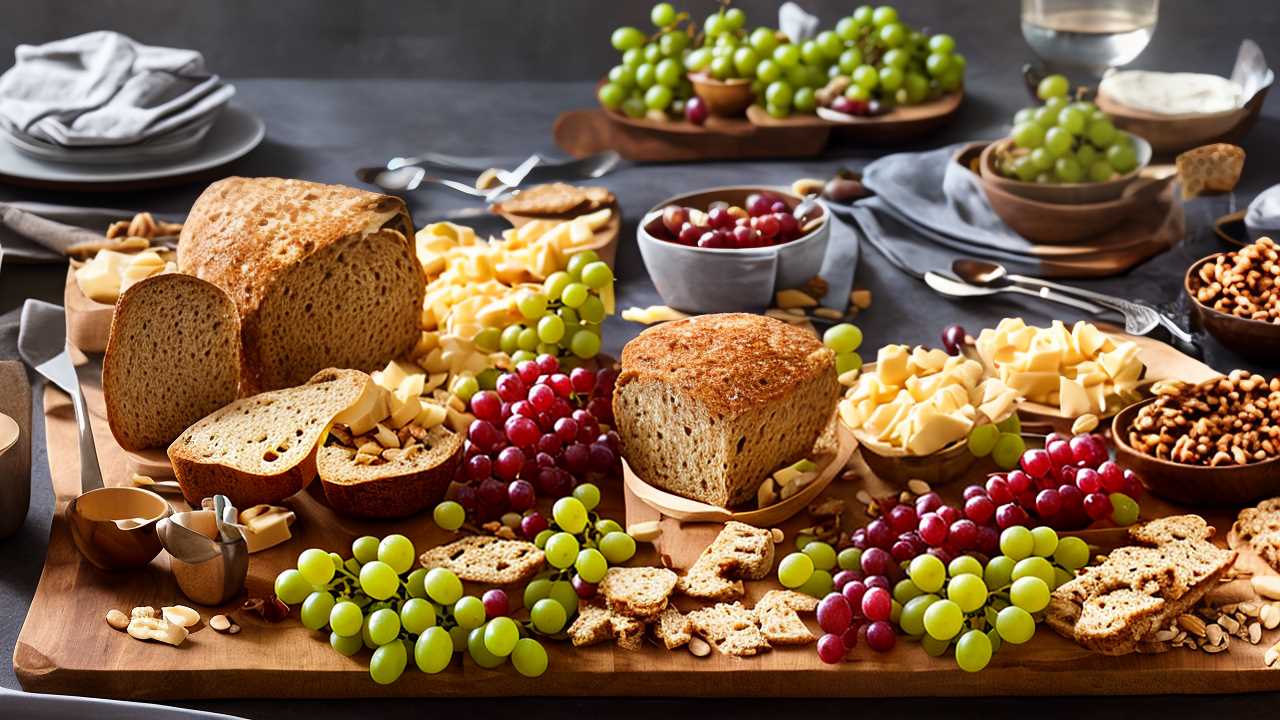
What Is the Best Cheese Protein Snack?
If you're on the hunt for the best cheese protein snack, you can't go wrong with Parmesan. It's packed with a whopping 35.1 grams of protein per 100 grams, making it not only a tasty choice but a smart one for muscle repair and growth. This hard, granular cheese is also a versatile addition to various dishes, from salads to soups, enhancing your meals while providing a concentrated protein source. It's also lower in fat compared to many other cheeses, helping you manage your weight effectively. Consider integrating Parmesan into your diet for not only its flavor but its significant health benefits, and you'll discover there's much more to explore about this nutritious snack.

Exploring Cheese Nutrition Basics
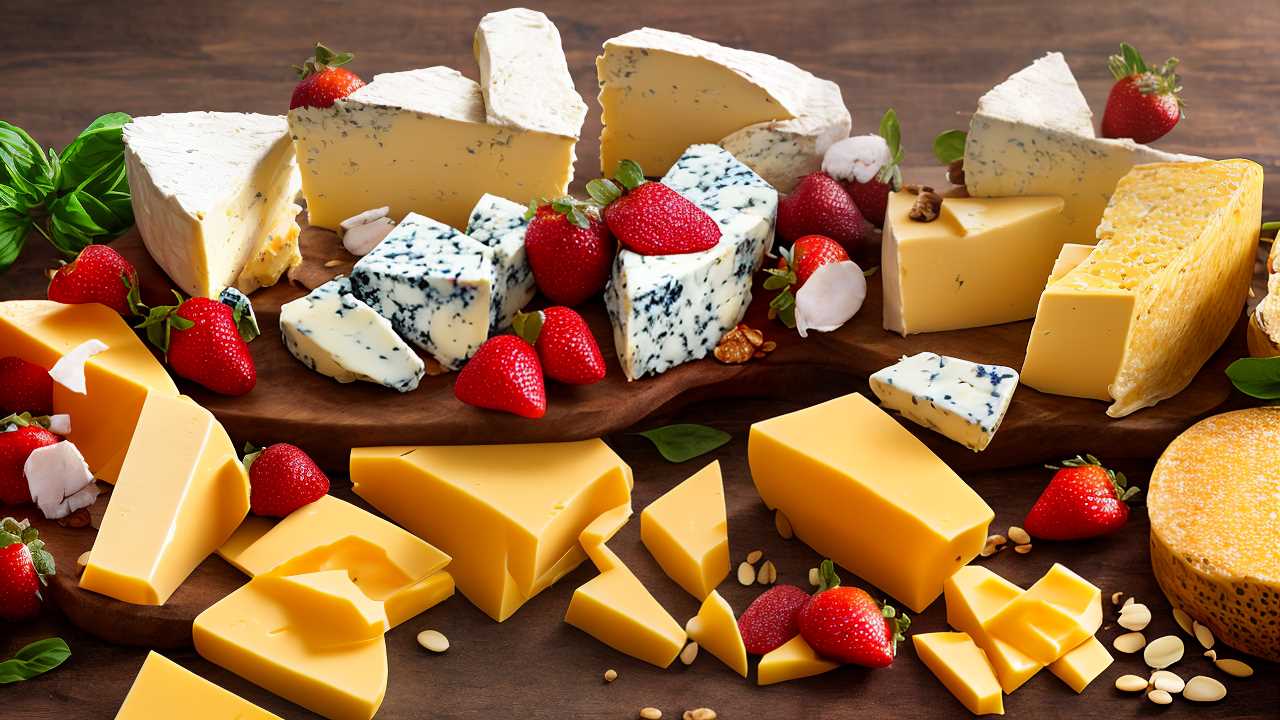
When exploring the nutritional basics of cheese, it's essential to recognize its rich protein content, which plays a pivotal role in muscle repair and growth. As you consider adding cheese to your diet or serving it to others, understanding its health benefits and appropriate serving sizes is crucial to maximizing its advantages while maintaining a balanced diet.
Cheese isn't only a good source of high-quality protein but also offers calcium, phosphorus, and, in some cases, vitamin D. These nutrients are vital for maintaining strong bones, teeth, and overall health. The presence of calcium and protein in cheese makes it an excellent snack for bone health and can aid in preventing osteoporosis.
Moreover, the protein in cheese can help you feel full longer, aiding in weight management by curbing overeating. Additionally, the probiotics found in some cheeses are beneficial for gut health, enhancing digestive well-being and potentially improving immune function.
However, it's important to be mindful of cheese serving sizes. Overconsumption can lead to excessive intake of saturated fats and sodium, which might counteract its health benefits. A standard serving size of cheese is about 1.5 ounces or the size of four stacked dice. Sticking to this serving size ensures you enjoy the health benefits of cheese without the risks associated with high calorie and fat intake.
Incorporating cheese into your diet or recommending it to others should be done thoughtfully. Opt for varieties that balance flavor and nutritional value while keeping an eye on the portion sizes.
This approach ensures you harness the cheese health benefits effectively, making it a smart, satisfying addition to a health-conscious diet.
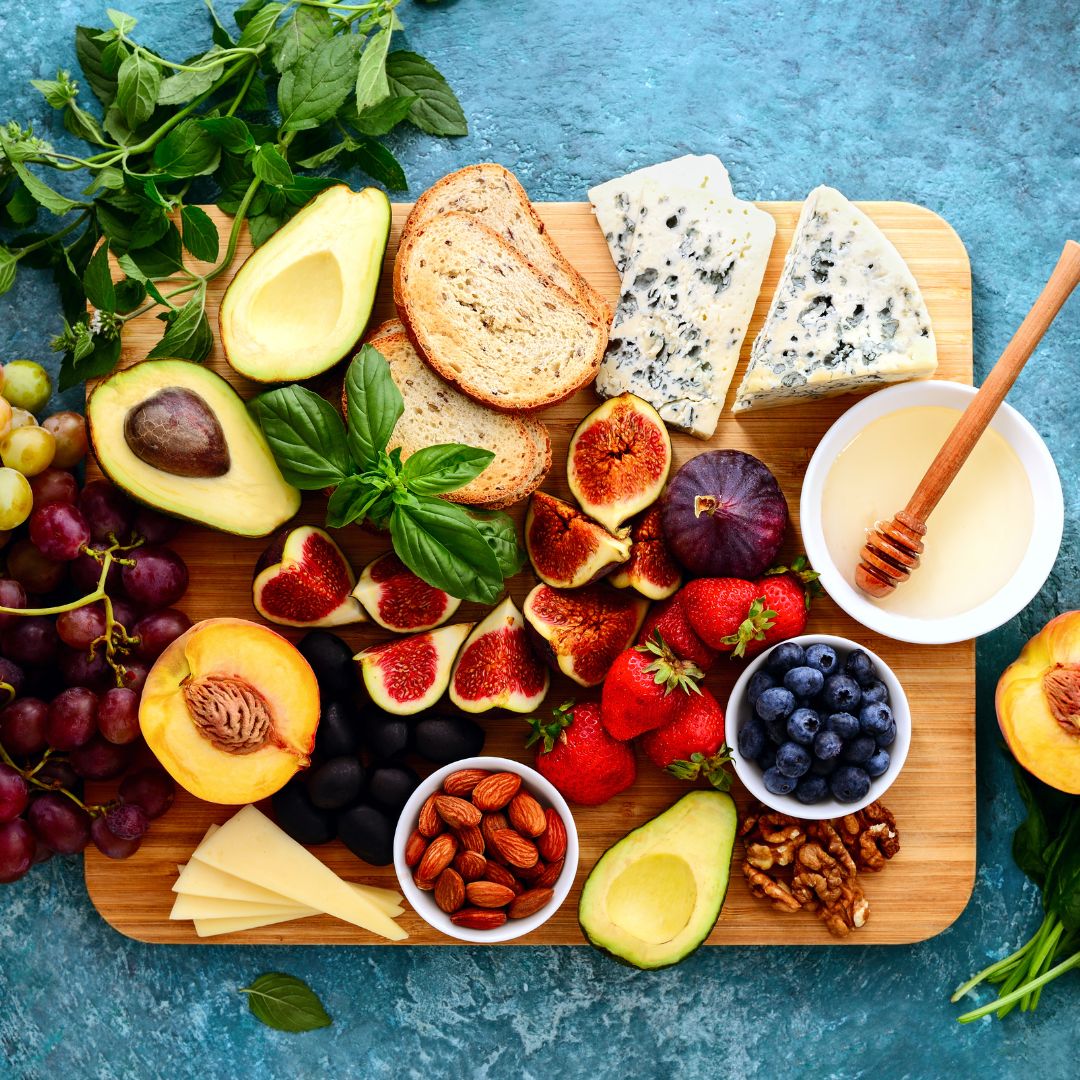
Top High-Protein Cheese Varieties
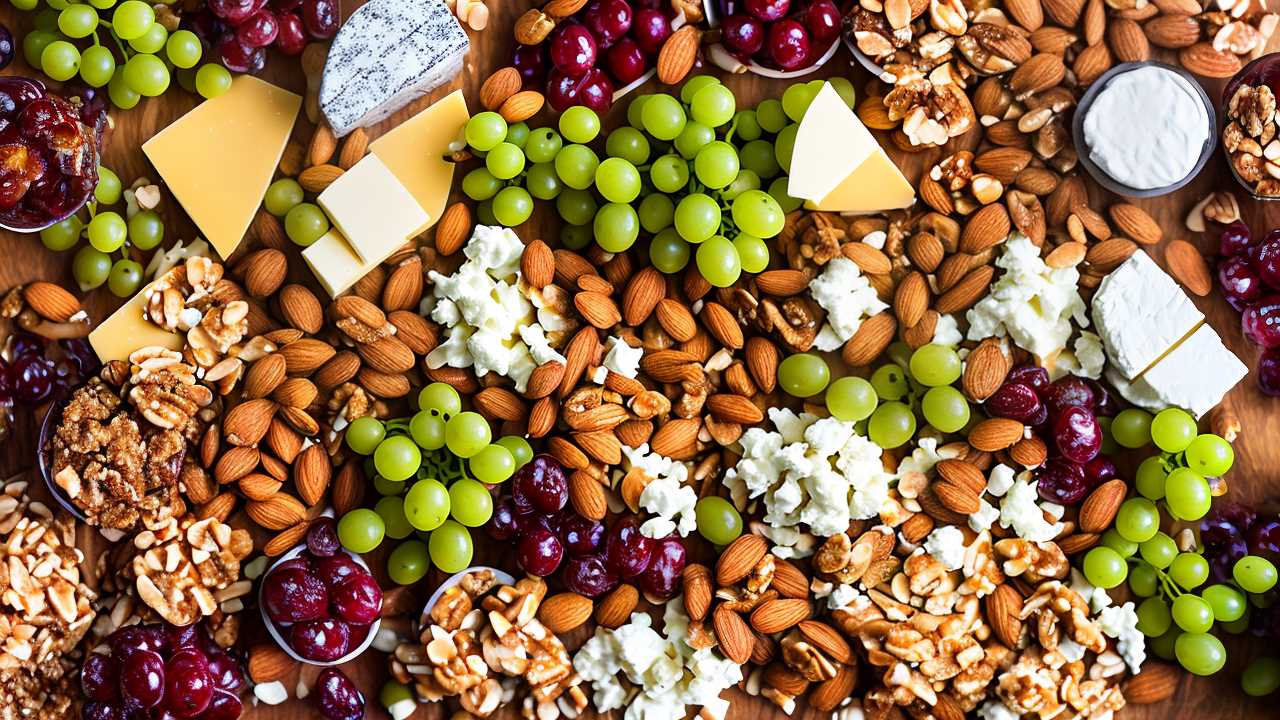
Transitioning from general cheese nutrition to specific types, let's delve into the top high-protein cheese varieties that can significantly enhance your diet. When you're aiming to boost your protein intake, not all cheese types are created equal. It's essential to select ones that not only align with your nutritional needs but also fit seamlessly into your meal plans.
High-protein cheeses provide a concentrated source of protein, vital for muscle repair and growth. They're also packed with essential amino acids and can be a delicious way to meet your dietary goals. Here's a quick look at some of the top contenders:
| Cheese Type | Protein Content (per 100g) | Ideal Usage |
|---|---|---|
| Parmesan | 35.1g | Grated over salads and soups |
| Swiss | 26.9g | Sandwiches, melts |
| Gouda | 25.4g | Snacking, sandwiches |
| Cheddar | 24.9g | Snacking, cooking |
Parmesan stands out not only for its high protein content but also for its bold flavor, making it a great addition to many dishes. Swiss cheese, with its distinctive holes and mild taste, is perfect for those who prefer a less intense flavor. Gouda and Cheddar are excellent for snacking and cooking, providing both versatility and robust protein.

Best Pre-Packaged Cheese Snacks
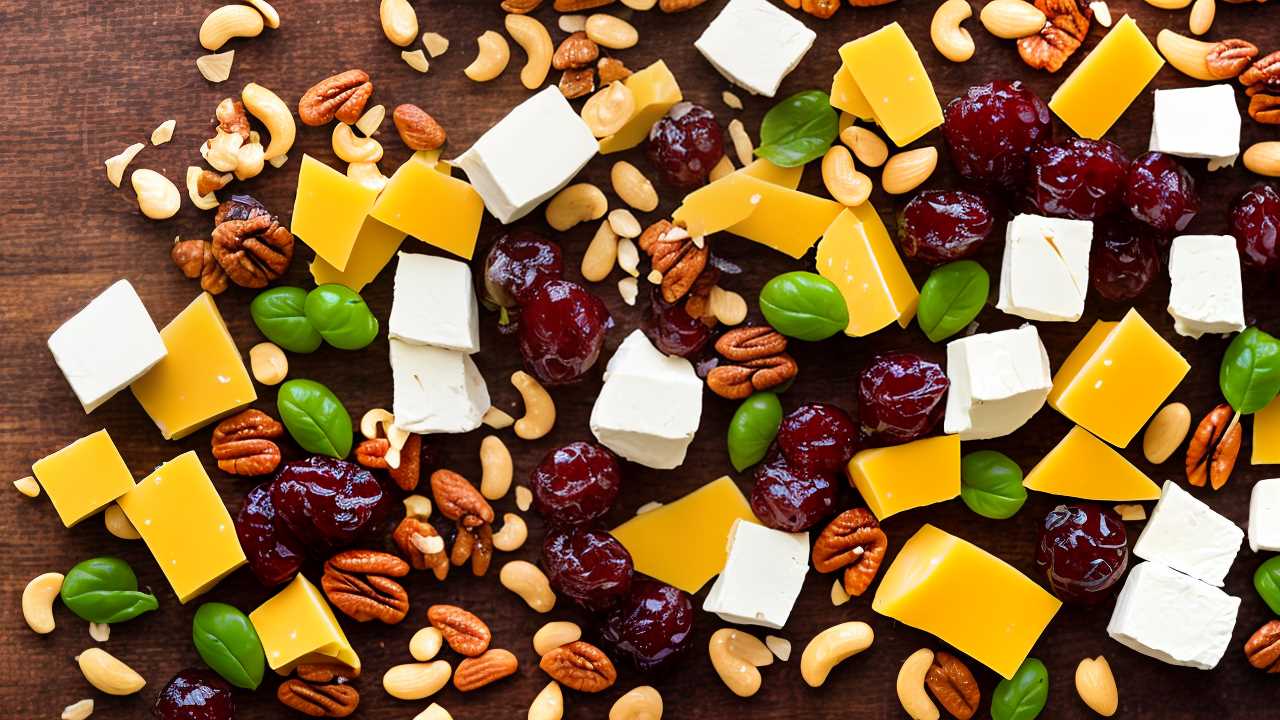
As you explore the best pre-packaged cheese snacks, it's vital to choose options that combine convenience with nutritional value. Not all snacks are created equal, and with the variety of cheese snack brands on the market, a nutritional label comparison is essential to ensure you're not only satisfying taste but also serving your body's needs.
When selecting a pre-packaged cheese snack, look for high protein content and low amounts of unnecessary additives. Brands like Sargento Balanced Breaks and Babybel offer products that fit this criterion well, providing a wholesome mix of nuts, dried fruits, and cheeses that cater to a health-conscious palette. These snacks are designed to offer sustained energy without the crash that comes from more processed options.
It's also beneficial to check the sodium levels, as some cheese snacks can be quite high in salt, which mightn't be suitable for everyone's dietary needs. Opt for lower sodium versions if you're watching your intake for health reasons.
Furthermore, considering the type of cheese used is paramount. Snacks made from cheese like mozzarella or Swiss typically have less fat and are a healthier choice for everyday snacking.
Lastly, think about the portion size. Pre-packaged snacks often come in controlled portions which help manage calorie intake better. This is especially helpful if you're serving others who might be trying to maintain a healthy diet or are simply mindful of their eating habits.
Additionally, exploring options from new cheese products like CheeseButta's gourmet offerings can add a delightful twist to your snack selection, combining rich flavors and dietary consideration.
Choosing the right pre-packaged cheese snack means balancing taste, convenience, and nutrition, ensuring you provide the best for yourself and those you care for.
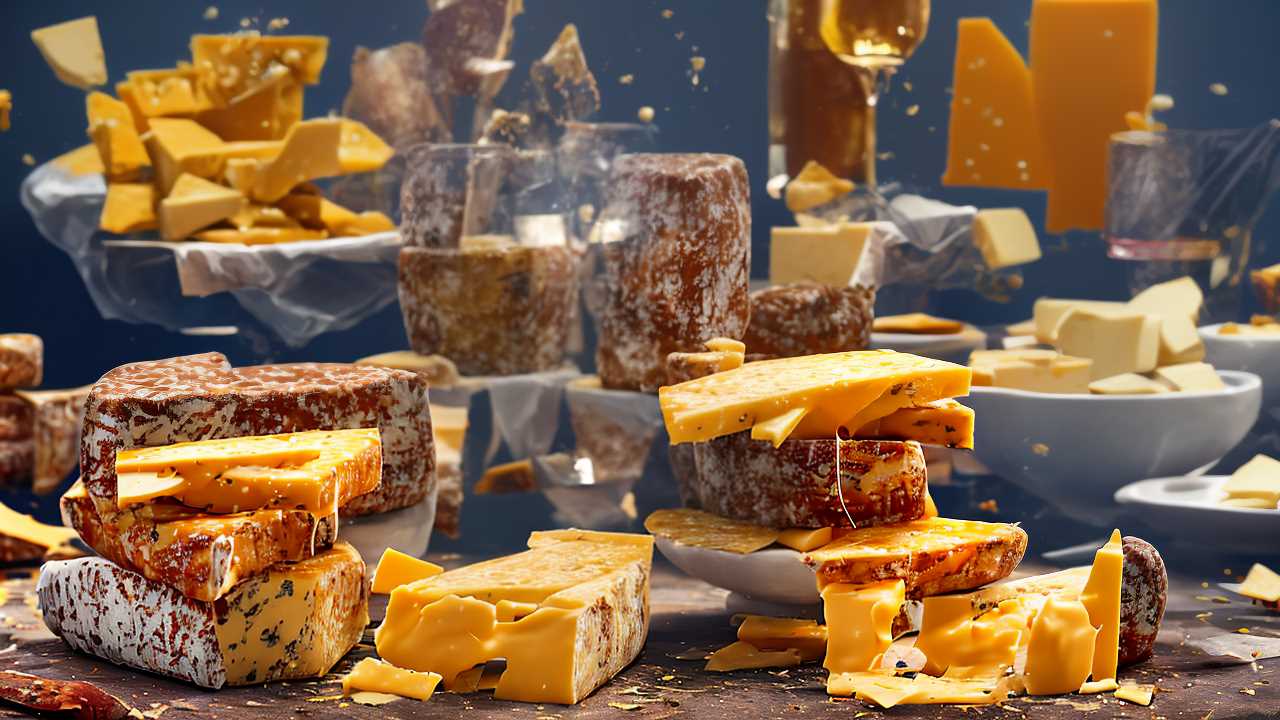
DIY Cheese Snack Recipes

While exploring store-bought options can be convenient, creating your own DIY cheese snacks lets you control the ingredients and tailor the nutritional content to your specific needs. Making these snacks at home not only ensures freshness but also allows you to experiment with various healthy cheese pairings that can enhance both flavor and nutritional value.
Start by choosing cheeses that are rich in protein but lower in fat, such as cottage cheese or part-skim mozzarella. Pair these with fruits like apples or pears for a sweet contrast or with nuts for added texture and omega-3 fatty acids. A popular choice is mini skewers where you can alternate pieces of cheese with grapes and cherry tomatoes, creating a visually appealing and nutritious snack.
Given the growth in cheese consumption among millennials, these homemade snacks can cater to a trendier, health-conscious audience.
For those who enjoy cooking, try baking your own cheese crisps. Simply sprinkle a thin layer of grated Parmesan or another hard cheese onto a baking sheet lined with parchment paper, add some herbs if you like, and bake until crispy. This not only serves as a great protein-rich snack but also offers the satisfying crunch many crave.
When it comes to snack storage, maintaining the freshness of your cheese is key. Store your DIY snacks in airtight containers and keep them refrigerated. For optimal taste and texture, consume them within a few days.
If you're preparing snacks for a gathering or to serve others, consider labeling the containers with the date they were made to ensure they're enjoyed at their best quality.

Choosing the Right Cheese for You
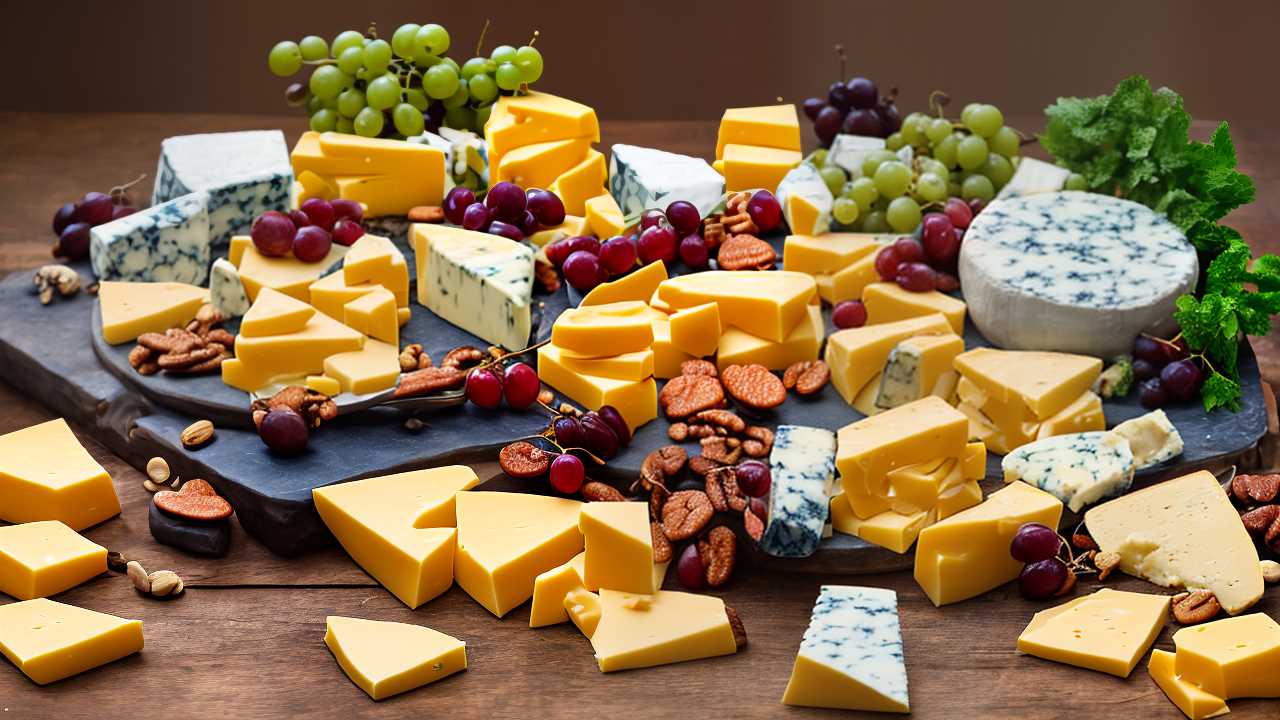
Selecting the perfect cheese for your snacks involves understanding its nutritional profile and how it fits into your dietary needs. When choosing, consider the balance between indulging in delicious flavors and maintaining a health-conscious diet. You're not just picking a cheese; you're selecting a component of your overall nutritional plan.
Here are four essential factors to guide you:
- Nutritional Content: Look for cheeses high in protein but moderate in fat, particularly if you're calorie-conscious. Options like cottage cheese offer high protein with relatively lower fat, making them excellent for muscle repair without overloading on calories.
- Cheese Flavor Profiles: Identify what tastes you enjoy. Do you prefer sharp and tangy or mild and creamy? For a robust option, aged cheddar provides a rich taste, whereas mozzarella is lighter and might be preferable if you're after something subtle.
- Cheese Pairing Suggestions: Consider what you'll pair with your cheese. If you're including fruits, nuts, or crackers, think about how the flavors will complement each other. For instance, the nuttiness of Gruyère pairs well with apples and a hearty whole-grain bread.
- Dietary Restrictions: Be mindful of any lactose intolerance or allergies. Cheeses like Parmesan are naturally lower in lactose, making them a safer choice for those with sensitivities.
Choosing the right cheese means balancing enjoyment with health. It's not just about the immediate pleasure of taste but also how it serves your body's needs.
With these considerations, you can confidently select a cheese that complements your dietary goals and enhances your meals, benefiting not just yourself but also those you serve.
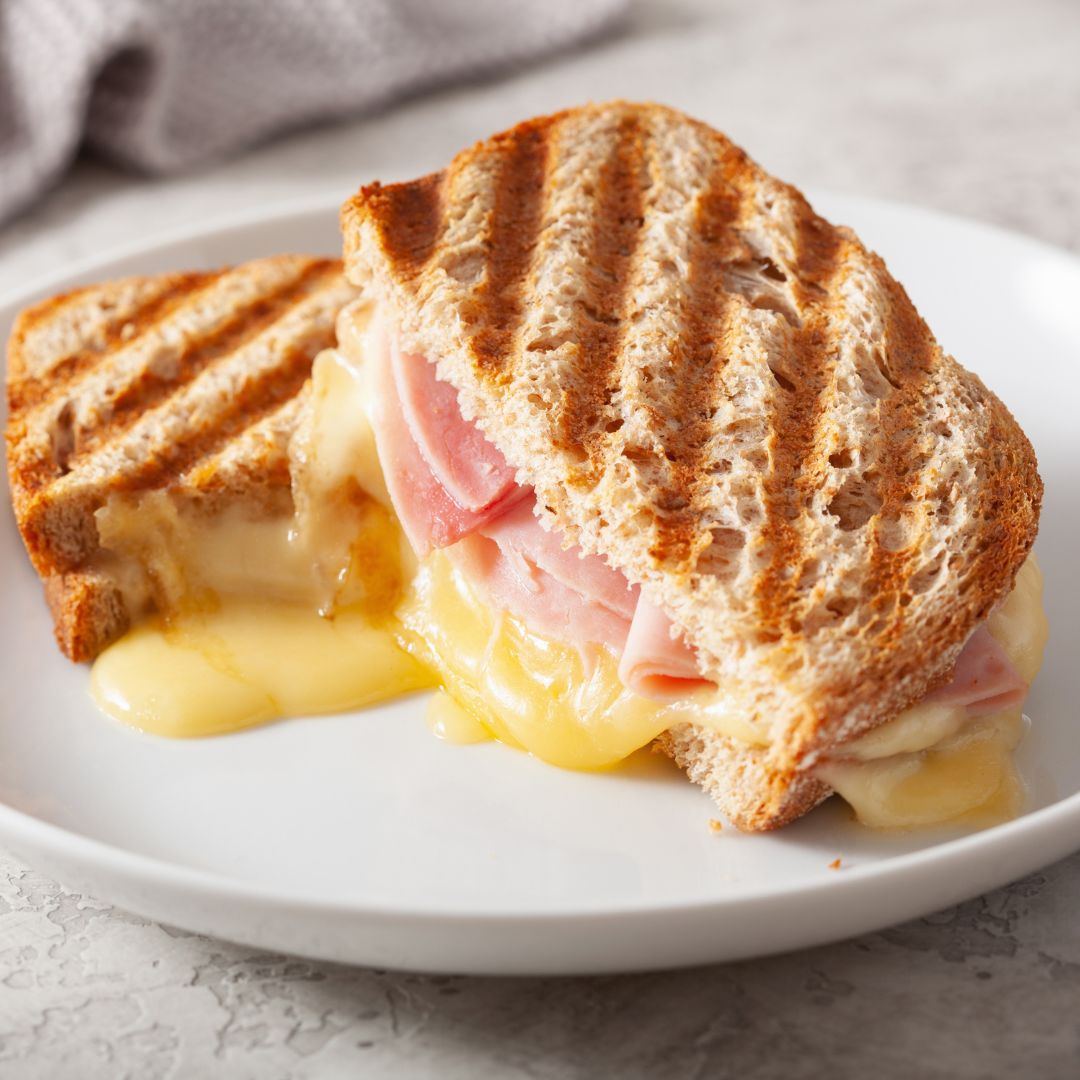
Frequently Asked Questions
Can Cheese Snacks Help With Weight Loss?
Yes, cheese snacks can aid in weight loss if you choose wisely.
Opt for options low in caloric content and high in protein benefits. Protein helps keep you full, which can reduce overall calorie intake.
However, moderation is key, as cheese can also be high in fats. Incorporate these into a balanced diet, and they can be a nutritious choice to help you serve your body's needs while managing your weight.
Are Cheese Protein Snacks Suitable for Vegans?
You're diving into whether cheese protein snacks are vegan-friendly. Unfortunately, traditional cheese isn't vegan, but plant-based alternatives, such as vegan cheese, offer a solution.
These are crafted from nuts, seeds, or soy, mimicking cheese's texture and flavor while aligning with vegan ethics.
When selecting a vegan cheese snack, look for options rich in protein to ensure they meet your nutritional goals, contributing positively to your health and the welfare of others.
How Do Cheese Snacks Affect Gut Health?
Cheese snacks impact your gut health by influencing digestion and offering probiotic benefits.
Fermented cheeses, rich in good bacteria, can aid in maintaining a balanced gut flora, essential for digestion and overall health.
However, it's crucial to opt for quality cheese and moderate your intake. Excessive consumption might disrupt this balance, leading to discomfort.
Always choose cheese that supports your health goals and consider its nutritional content to make an informed choice.
Can Lactose-Intolerant Individuals Enjoy Cheese Snacks?
You're in luck! Even if you're lactose-intolerant, you can still enjoy cheese snacks.
Opt for lactose-free options or cheese alternatives like those made from almonds or cashews. These choices not only cater to your dietary needs but also provide valuable protein, essential for muscle repair and growth.
Always seek out products with natural ingredients and minimal additives to ensure you're serving your body the best nutrition possible, promoting overall health and well-being.
Are There Any Nut-Free Cheese Snack Options?
Certainly, you'll find several nut-free cheese snack options available that cater to your dietary needs.
These alternatives often include seeds or legumes, providing a safe and nutritious choice. It's essential to read labels to ensure these products are free from nuts and other allergens.
Opting for cheese snacks made from alternative sources can also help maintain your protein intake while keeping your diet varied and enjoyable.
Always prioritize health and safety in your selections.
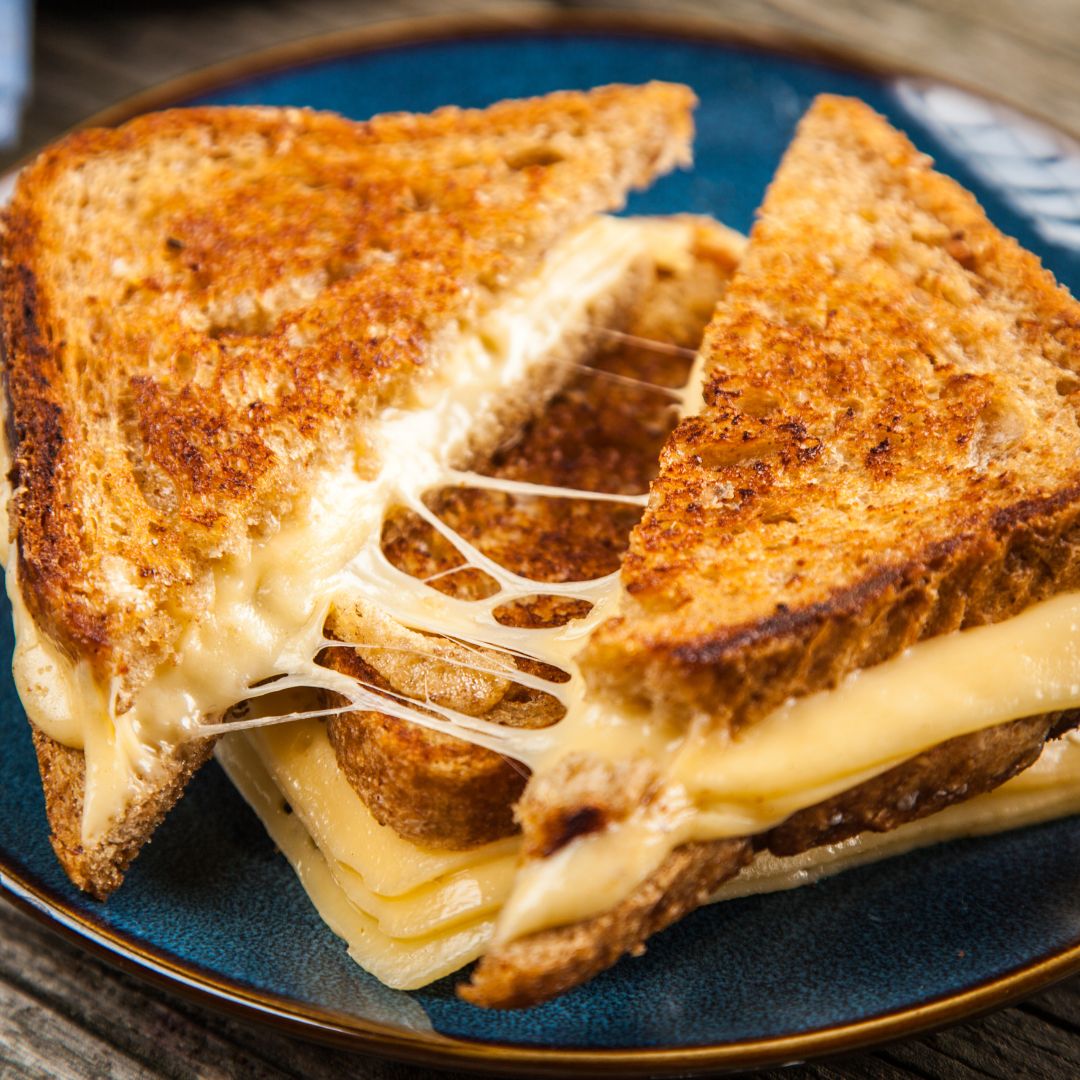
Conclusion
As you navigate the cheese aisle, think of each option as a unique tool in your nutritional toolbox. Whether you opt for the robust protein punch of Parmesan, the convenience of pre-packaged string cheese, or delve into crafting your own mozzarella snacks, choosing the right cheese can elevate your health journey. Remember, balancing enjoyment with nutritional benefits ensures your snack choices are as rewarding as they are wholesome. Let your palate and health goals guide you to the perfect cheese.

_7.png)


